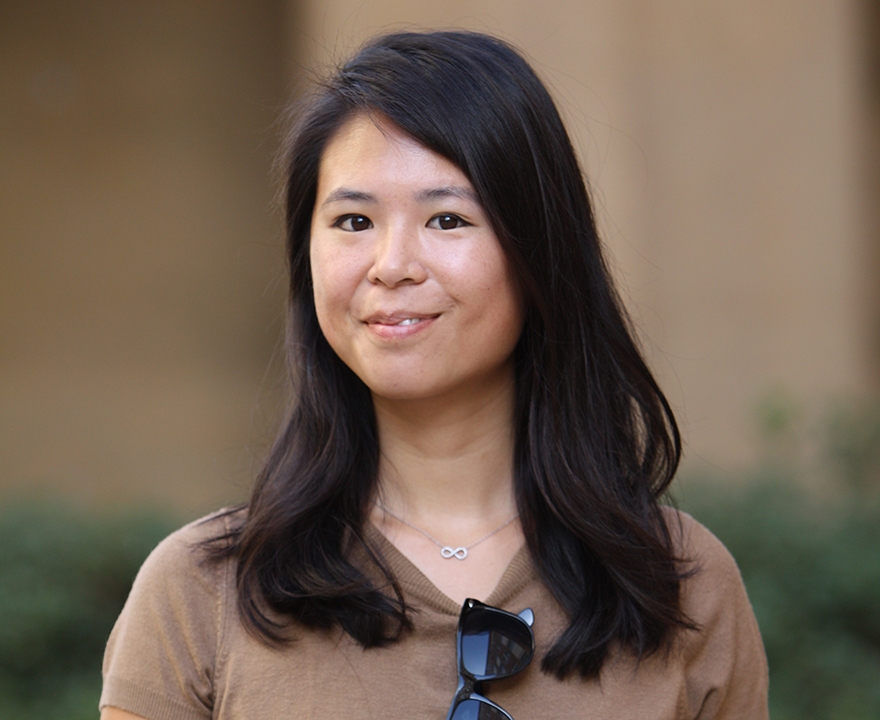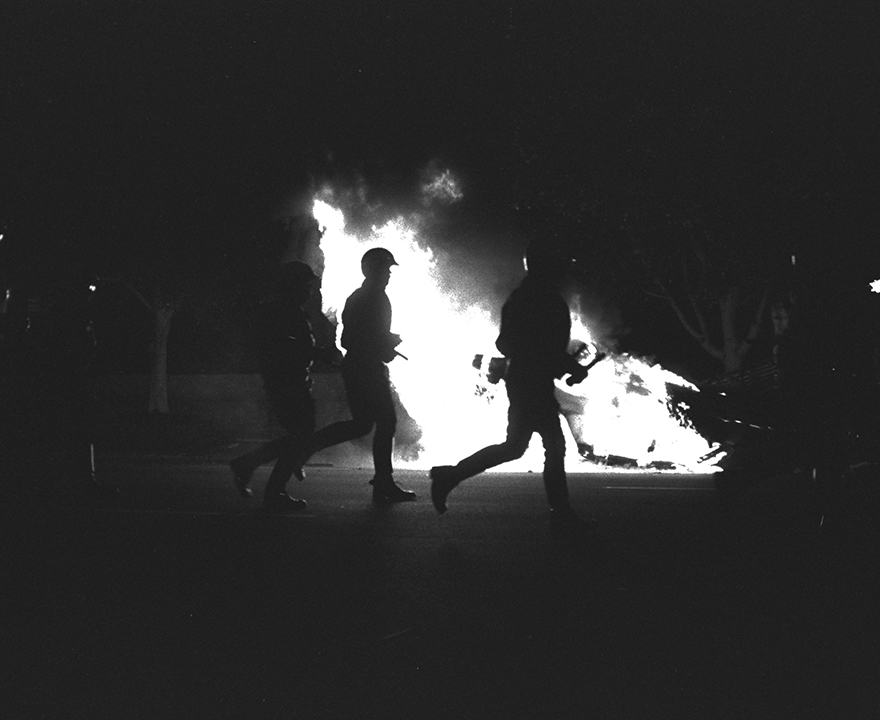Coming together

Coming together
- February 21, 2019
- Political science doctoral student Stacey Liou pursues award-winning research on public assembly
-----
 The first amendment of the U.S. constitution guarantees “the right of the people peaceably
to assemble.” But what does public assembly look like? What’s contained in this idea?
These are some of the questions poli sci grad student Stacey Liou is trying to answer
with her dissertation research.
The first amendment of the U.S. constitution guarantees “the right of the people peaceably
to assemble.” But what does public assembly look like? What’s contained in this idea?
These are some of the questions poli sci grad student Stacey Liou is trying to answer
with her dissertation research.
Liou’s work has been recognized in some of the top journals and conferences in her field. She has received a number of awards, including the Christian Werner Fellowship, Order of Merit Award, and the Harry Eckstein Award for distinguished graduate student from the Department of Political Science.
“She works at a very advanced level. This has always been clear, but the real-world confirmation came in her third year of the program, when she published an article in Political Theory, the top journal in her field. It wasn’t a fluke. Her work really is that good,” says Liou’s advisor and political science professor Kevin Olson.
L.A. Uprising
Liou’s dissertation research explores “assembly” or the politics of public protest (e.g. demonstrations, sit-ins, marches, rallies, etc.).
“The question she’s exploring is what it is about bodies assembled in a public space that is political,” explains Olson. “This is something that isn’t talked about or understood well in political science. She’s trying to figure out what is the added significance of expressing oneself through public assembly versus an act that’s less public, like signing a petition. This is a very original topic.”
Much of Liou’s dissertation research focuses on the 1992 L.A. Uprising, the civil unrest that took place after officers from the Los Angeles Police Department were acquitted of the usage of excessive force in the beating of Rodney King. Liou’s research examines the materiality or the physical make-up of the gathering, the role of audience, the emotional response to the gathering and how all these factors affect how the assembly is conceived.
“Many people were really bewildered by what went on. The fact that it’s colloquially referred to as a riot shows that, for many, the event provoked a lot of fear,” she says.
Liou’s research is particularly relevant in our contemporary political climate. Over the last decade and particularly since the 2016 presidential election, public assembly has become a prominent way of expression.
“When people are dissatisfied with the formal avenues of politics, like voting and speaking with their political representatives, they tend to resort to public assembly, which can feel like a more immediate response,” she says.
Coming together
Liou’s interest in the themes of her research runs deep.
“I’ve always been inspired by people doing things together, by people going out of their way to come together for something they believe is important,” she says.
Liou grew up in L.A. and points to the city’s car culture for inspiring her fascination in public gatherings.
“L.A. is very car-centric. Public transportation isn’t great and it’s hard to walk and bike to places,” she says.
In an effort to get outside LA’s car culture, Liou participates in events where streets are closed to cars and the community comes out to create and enjoy public space together. She also enjoys participating in mass bike rides throughout the city, which attracts hundreds of cyclists. With UCI alumna Pernilla Johansson, she’s even published a paper about it. For Liou, various forms of assembly are inspiring.
Finding an intellectual community
Even Liou’s interest in pursuing a Ph.D. was partly due to her desire to connect with others. After she graduated from Macalester College, where she triple majored in political science, women’s, gender and sexuality studies, and international studies, Liou knew she wanted to pursue graduate education. She took a few years off from school to work, and while she admits reading and writing are pursuits one can do alone, she knew something was missing.
“I couldn’t replicate being in an intellectual community on my own. Here, I’m lucky to be in an environment where I’m constantly learning,” she says.
A great combination
It’s no surprise that the highlight of Liou’s experience at UCI has been people.
“Grad school is really hard and luckily, I’ve found people I really like and who I’ve learned from. The faculty have been extremely supportive, and I’ve been given the freedom to pursue my interests,” she says.
Liou plans on graduating next year, after which she’ll apply to academic positions. Liou refers to the time after graduation as “up in the air,” but this designation seems much too humble. Even in a difficult academic job market, it’s hard to believe she’ll have trouble finding a position.
“She’s never followed ordinary lines. Her work is subtle and rigorous at the same time. This is a great combination,” says Olson.
-Jill Kato for UCI School of Social Sciences
-pictured: Los Angeles, California - April 29, 1992: LAPD officers advance along Temple Street, downtown, during the first day of the Rodney King riots. Andy Katz/iStock
-----
Would you like to get more involved with the social sciences? Email us at communications@socsci.uci.edu to connect.
Share on:
Related News Items
- Careet RightSocial sciences research at risk
- Careet RightReady for takeoff
- Careet RightAttending the National Conference for Black Political Scientists
- Careet RightUC Irvine political science faculty statement on the events of Jan. 6, 2021
- Careet RightHundreds of political scientists call for removing Trump


